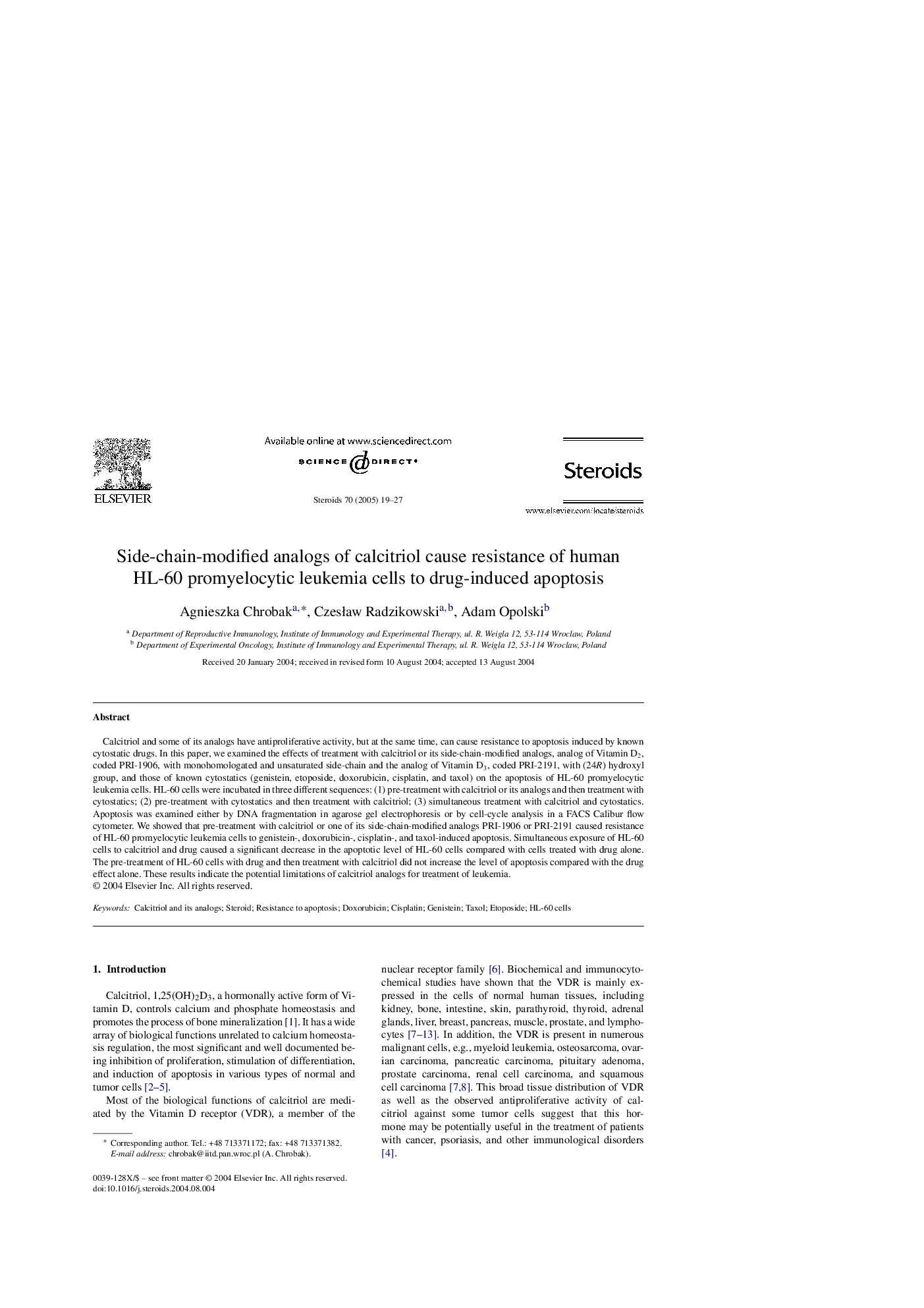| Article ID | Journal | Published Year | Pages | File Type |
|---|---|---|---|---|
| 10847744 | Steroids | 2005 | 9 Pages |
Abstract
Calcitriol and some of its analogs have antiproliferative activity, but at the same time, can cause resistance to apoptosis induced by known cytostatic drugs. In this paper, we examined the effects of treatment with calcitriol or its side-chain-modified analogs, analog of Vitamin D2, coded PRI-1906, with monohomologated and unsaturated side-chain and the analog of Vitamin D3, coded PRI-2191, with (24R) hydroxyl group, and those of known cytostatics (genistein, etoposide, doxorubicin, cisplatin, and taxol) on the apoptosis of HL-60 promyelocytic leukemia cells. HL-60 cells were incubated in three different sequences: (1) pre-treatment with calcitriol or its analogs and then treatment with cytostatics; (2) pre-treatment with cytostatics and then treatment with calcitriol; (3) simultaneous treatment with calcitriol and cytostatics. Apoptosis was examined either by DNA fragmentation in agarose gel electrophoresis or by cell-cycle analysis in a FACS Calibur flow cytometer. We showed that pre-treatment with calcitriol or one of its side-chain-modified analogs PRI-1906 or PRI-2191 caused resistance of HL-60 promyelocytic leukemia cells to genistein-, doxorubicin-, cisplatin-, and taxol-induced apoptosis. Simultaneous exposure of HL-60 cells to calcitriol and drug caused a significant decrease in the apoptotic level of HL-60 cells compared with cells treated with drug alone. The pre-treatment of HL-60 cells with drug and then treatment with calcitriol did not increase the level of apoptosis compared with the drug effect alone. These results indicate the potential limitations of calcitriol analogs for treatment of leukemia.
Related Topics
Life Sciences
Biochemistry, Genetics and Molecular Biology
Biochemistry
Authors
Agnieszka Chrobak, CzesÅaw Radzikowski, Adam Opolski,
